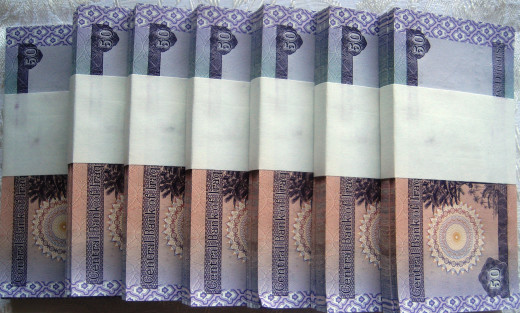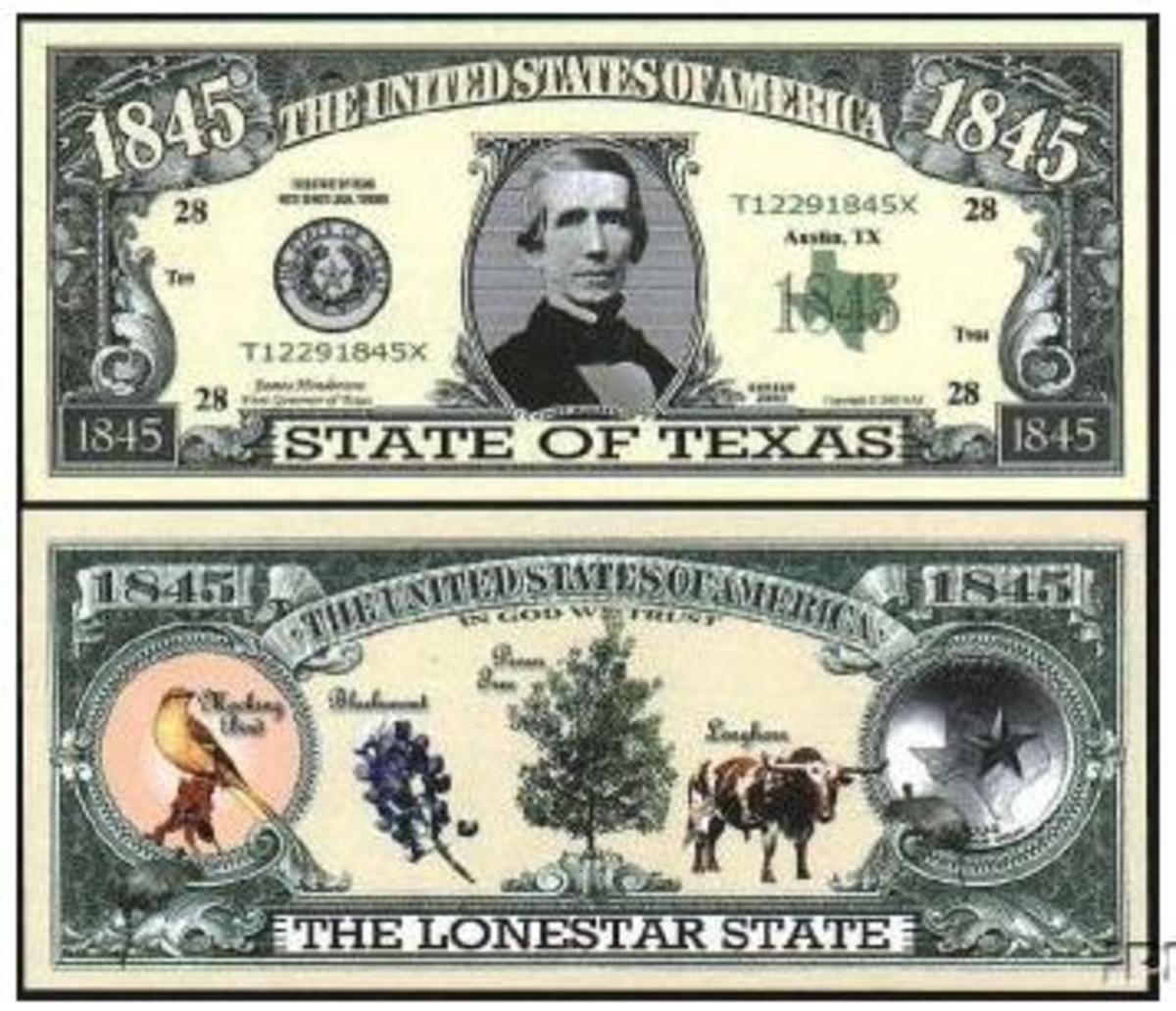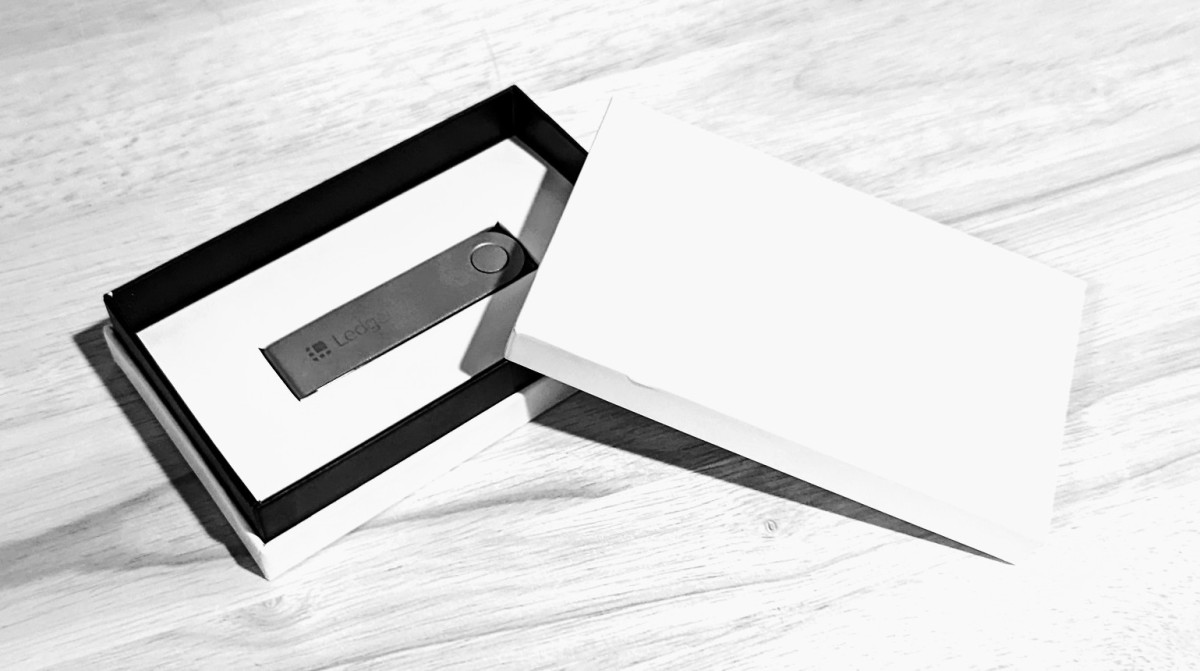Why Don't Banks Buy Or Sell The Iraqi Dinar?
The Iraqi Dinar

Why Don't Banks Sell The Iraqi Dinar?
Years back banks like Chase, Fifth Third, Columbus, and others sold as well as bought the Iraqi Dinar currency. In recent years however most if not all banks and even currency exchanges have ceased to deal in the Iraqi Dinar. Many people want to know why and that is what this hub is going to address.
First off US Banks have never really been in the business of exchanging currency. The whole US Banking system is a bit behind the curve whether it be sending foreign wires and drafts or even just trying to exchange a bit of currency for vacation.
Unlike Europe where one can hop on a train and hit 5 countries in a matter of a few hours, all of which require a separate currency, the US is much bigger and much more spread out and just doesn't lend itself to needing currency as often. Add to that US Citizens tend to travel less than citizens of other countries.
Most banks don't really deal with foreign currencies in general let alone an "exotic" currency like the Iraqi Dinar.
Banks generally don't make much if anything on their currency exchange. They offer very low competitive rates and generally do is as a convenience or courtesy to their clients, however it's not what they are in business to do and they don't make much money doing it. In relation to dealing with the Dinar, they are not in the business of getting people currency for long shot, high risk, investments or currency speculation. Especially when most Dinar customers are people who will be repeat buyers and make more work for them.
Many banks these days no longer deal with foreign currency,they either outsource it to another company or at the very least they only deal with a few basic currencies such as the Euros, Pound, Canadian Dollar, and maybe Mexican Peso. They will generally not deal with the more exotic stuff such as Iraqi Dinar, Vietnam Dong, Indonesian Rupiah, etc, etc, etc.
Not only is there not much demand for these currencies making them more difficult and costlier to get, they also have a tendency to have huge fluctuations which potentially means if they are holding reserves of that currency or even if they order just for one customer, the rate could change dramatically in the time they place the order until the time they sell it and can cost them money that way as well.
In the case of the Iraqi Dinar this is even of more concern to them since the Iraqi Dinar is not a pegged currency, it's not a trade-able currency and it's not like other currencies that are tied to each other and the dollar for their rate. With the Iraqi Dinar the Central Bank of Iraq or CBI, essentially "makes up" an exchange rate. Sure there has to be some confidence from the general populace and the outside world in that they have to have some confidence in that rate but none the less the CBI basically makes it up which also makes it very volatile.
One reason I was actually told by a banker at Fifth Third Bank as to why they ceased to sell the Iraqi Dinar was because people were buying it and an "investment". On the surface I thought this was kind of weird but makes sense the more you think about it or in my case the more I spoke with this banker. First off as I said the bank is happy to provide a currency exchange service to you as a convenience but not as an investment.
Another issues this banker told me was that they really did not approve of people buying the Iraqi Dinar as an investment. She wouldn't really expand too much on that point but here's basically why. Technically to sell an investment you and your investment need to be registered with the SEC, the Securities and Exchange Commission to sell that investment. The Dinar nor the banks are registered with the SEC to sell investments in that way. Though probably still legal it is a grey area and they probably just want to be extra careful and avoid any grey areas of the law.
That said I do find it hard to believe they thought people were buying the Dinar for anything other than an investment however. Though I'm sure there are a limited number of contractors working in Iraq and even maybe US Military personal who would have bought some Dinar it's not as if people are heading to Iraq for spring break or sightseeing, heck for most of the time banks were selling Dinar there weren't even commercial flights going into Iraq so I'm not sure who they thought was buying up all their Dinar besides investors.
One of the last reasons I feel banks are no longer selling the Iraqi Dinar is out of sheer annoyance with Iraqi Dinar buyers. I'm going to give it to you guys very straight so please don't be offended if you recognize yourself in this description. Many Iraqi Dinar buyers are very nice people, levelheaded people who realize this "investment" is a long shot, long term, and very speculative "investment" almost like a long shot lottery ticket.
Many on the other hand are in my mind gullible and have been convinced by Gurus and people on message boards and forums that this is a sure thing and it's only a matter of days until the million Dinar they bought for $1,000 will be worth $12 million dollars overnight.
Many people would pester the bankers making specific requests for smaller notes or certain denominations of notes of the Dinar. They would call the bank up on a daily basis asking if it had revalued yet, if they could come cash in their million Dinar for 3 million dollars, asking about rates after revalue and margins after an revalue.
The fact of the matter is an RV has never happened in currency history as far as I know, and if you want to say otherwise I'd be happy to learn about it but don't tell me the Kuwaiti Dinar, German Mark, or Mexico Pesos because none of those are true revalues though many like to refer to them when trying to find support to back the possibility of a Dinar revalue.
I have friends and family who have worked in banks and currency exchanges. They would tell me how they get a dozen if not dozens of calls about the Iraqi Dinar, especially around times that there's rumors floating around that a revalue is imminent.
They generally don't know much about the currency nor do they care much about the currency. They find these customers to be annoying and a drag on their day taking them away from other actual important duties they have.
A revalue is a totally hypothetical scenario as it's never happened before, however people are wanting banks to agree on a margin or even to deal with the currency post revalue. A bank works on concrete numbers and figures, not hypothetical scenarios. For that reason no bank would discuss a currency that isn't even treatable. They don't know if it ever will be, they don't know if they will have an outlet such as the CBI, to sell the currency they bought in of to someone else. They don't know what it will cost them to cycle through this currency both ordering it and selling it off.
I hope that helps you guys. Those are some of the reasons why banks do not deal with the Iraqi Dinar currency. In the future should the Iraqi Dinar stabilize as a country financially as well as economically it will be a more easily exchanged currency. Also, if the country of Iraq is able to join the IMF which stands for the International Monetary Fund, or World Trade Organization that should also cause the currency to become more easily traded.








